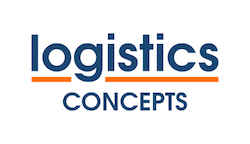11 Mai INCOTERMS 2020
The most commonly used rules for the interpretation of trading terms in international trade are those defined by the International Chamber of Commerce (ICC).
They are internationally recognized and are known as Incoterms.
Incoterms signify to buyer what is, and more importantly what is not, included in the selling price.
They also indicate where the exporter’s responsibility ends, and the importer’s responsibility begins in respect of the goods exported.
Which term will apply to a particular export transaction is a matter for negotiation between buyer and seller?
Definition of Incoterms :
INternational COmmercial TERMS: tools created in 1936 by the ICC and regularly revised. The 2020 version is applicable as of January 1, 2020.
The Incoterm is one of the conditions of the commercial contract among many others (price, delay, terms of payment, guarantee in case of defect…).
The Incoterm is related to the routing of the goods (whether they are invoiced or not!).
It distributes the rights and obligations along the chain of transport between seller (shipper) and buyer (recipient).
It is not compulsory, but it is very practical to secure any exchange of goods (international, within the EU, but also in national sales).
The Incoterms define :
- The division of obligations between seller/buyer. Who does what in terms of transport – insurance – customs (if applicable)? Who provides the associated documents?
- The distribution of costs. Who pays what in terms of transport – insurance – customs (if applicable) and other related services. The transfer of costs is done at the « place of destination » associated with the chosen Incoterm.
- The distribution of risks. To what extent is the seller responsible for the risks incurred by the goods during transport? The transfer of risks takes place at the « place of delivery ». It does not always correspond to the place of destination…
The Incoterms do NOT define :
The point of transfer of ownership. This is generally dealt with by the retention of title clause stipulated in the contract or in the general sales conditions.
Incoterms are presented as 3-letter codes and are classified into 2 groups:
7 Multimodal Incoterms®
When the contract covers one or more modes of transport (air/sea/land/rail). They also cover transport in maritime containers, when the goods are delivered to the container yard. The place associated with the multimodal Incoterm can be various and varied (warehouse, port, airport, border…). Places « from place to place » to be defined.
- EXW – Ex-Works – At the factory
- FCA – Free-Carrier
- CPT – Carriage Paid To
- CIP – Carriage Insurance Paid To
- DAP – Delivered At Place
- DPU – Delivered at Place Unloaded
- DDP – Delivered Duty Paid
4 Maritime (or Inland) Incoterms®
When the pick-up and delivery points are ports, or for goods handed over to the shipping line alongside the ship or on board the ship at the port of shipment. Generally, bulk and conventional transport (non-containerized goods loaded with the help of hoists, pipelines…). The place associated with the maritime Incoterm can only be a port. Places « from port to port » to be defined.
- FAS – Free Alongside Ship
- FOB – Free On Board
- CFR – Cost and Freight
- CIF – Cost, Insurance and Freight
The further the seller goes in providing logistics services, the more costs are incurred which should be reflected in the sales invoice.



